- You are here:
- Home »
- Blog »
- Blog
- » How Much is a Cord of Wood?
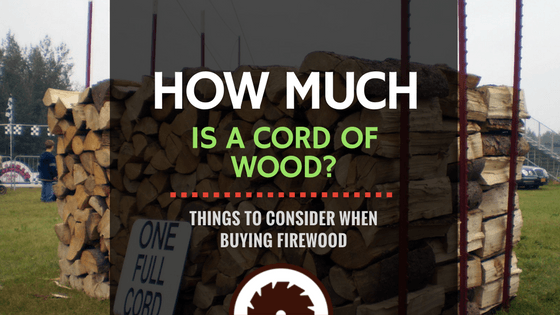
How Much is a Cord of Wood?
How much is a cord of wood? This is a popular question amongst those who have never ordered large amounts of wood before and are planning on doing so soon. If a great deal of your home heat is generated thanks to firewood, you'll need to keep a careful eye on wood quality and prices.
Knowing the size, volume and price of a cord of wood is critical for those who can’t or won’t cut their own wood and need to have it delivered to them instead. In this article, we’ll cover the most important things to consider when shopping around for large amounts of wood.
Table of Content
What Are The Dimensions Of A Cord Of Wood?
A cord of wood, snugly split and stacked, should measure 4 feet high, 4 feet wide and 8 feet long. The overall volume of this dimension is 128 cubic feet, but split wood has gaps and airspace so it will dry well and burn efficiently. You should be able to count on 85 cubic feet of wood in a cord.
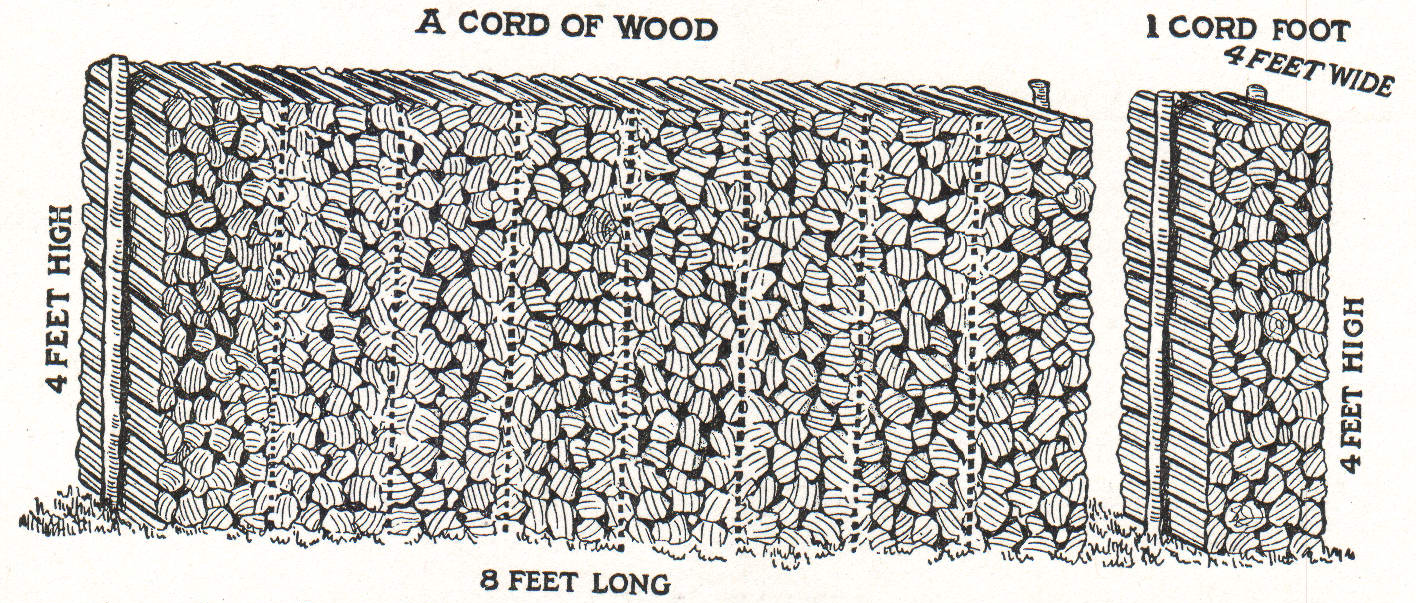
The four-foot-wide measurement is critical; it's generally assumed that firewood comes cut into sixteen inch long pieces for proper fit inside wood stove or fireplace. Three sixteen inch pieces of wood will reach to four feet. If you're offered a face cord of wood, be aware that the volume will be only 1/3 of a full cord; a face cord only has one length of split wood.
Things To Consider When Buying Firewood in 2019
When reviewing the price of a cord of wood, keep a thought for the flexibility of your own heating system. If you have central heat and just use firewood to warm up one section of the house and provide beauty, wood can be a luxury. However, if the first person that gets out of bed has to fire up the woodstove to make your house cozy and warm, you need a woodcutter and delivery team who'll give you a fair product for your money.
To keep things on the up and up, make sure you get a look at the wood before it gets dropped off. You want to be able to review the dimensions of the cord before it gets tossed off the truck in a jumble.
If there are several woodcutters in your area, it might be a good idea to call and check references.
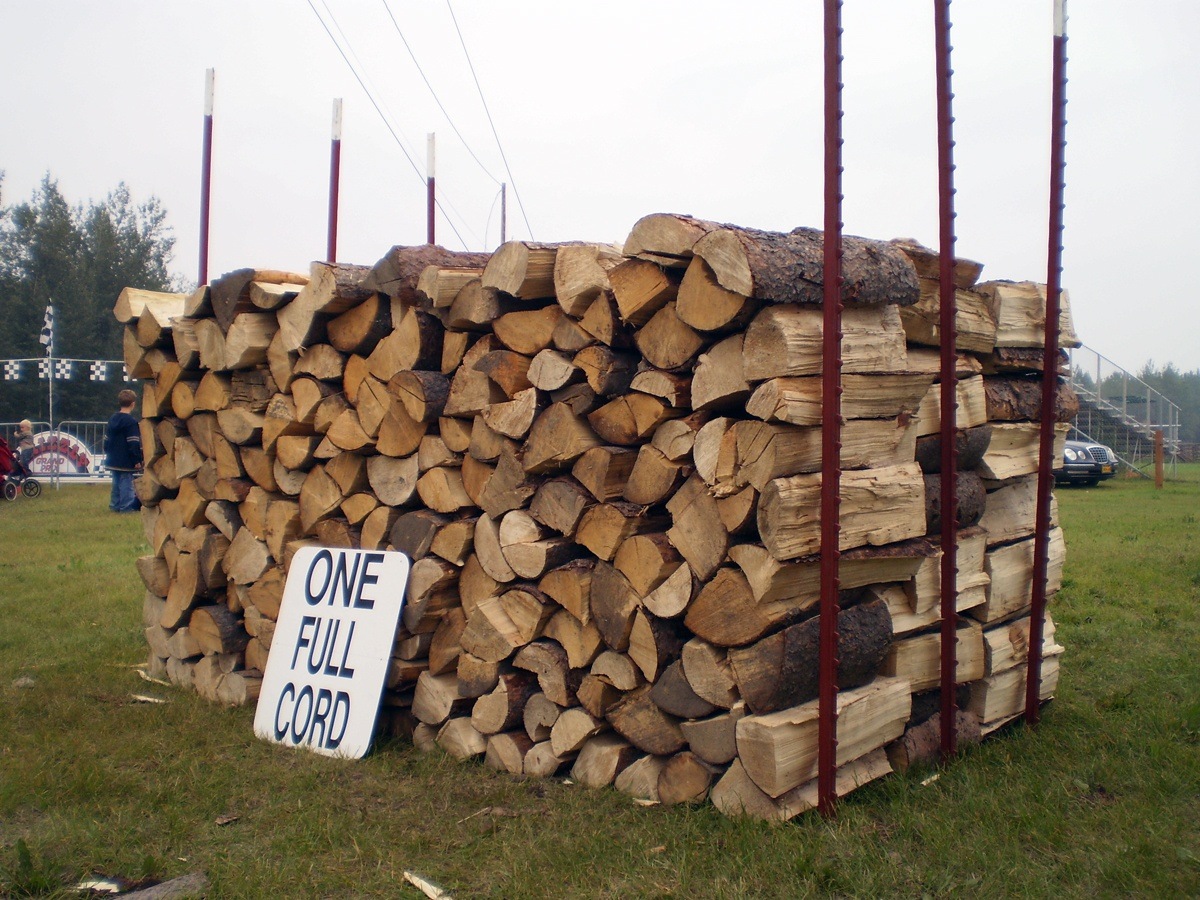


How long does a cord of wood last?
A lot depends on the size of your home and how weather-tight it is. You can reduce the amount of fuel you need to use by making sure your home gets plenty of winter sun and by planting windbreaks on your property. Is your fireplace your main source of heat, or do you have fuel oil, propane or natural gas as a backup heat source? An extremely efficient stove or fireplace can also reduce the amount of wood you need.
Of course, the severity of your winter local winter temperatures will impact the amount of wood you need to burn. However, homesteaders in the northern United States heat a 700 square foot home with two cords of wood per winter. However, if you're planning to do most of your heating with wood, too much wood is a great investment!
When buying wood, be aware that most pickup trucks can only haul about a 1/2 cord of wood at a time. If you're buying from a new woodcutter, be on hand when that first load shows up. Check it for bug damage. If you notice a lot of burrowing or sand on the wood, don't accept the remainder of the cord. You don't want to transport termites or carpenter ants into your home.
As possible, review the types of wood in the cord and the age of the wood that's been delivered. Old lumber will turn gray and be lightweight to handle. This wood will burn hot and fast. If you find a piece that's especially lightweight, see if you can twist until it crumbles or snaps.
Especially old wood can be loaded with fungus and mold; you don't want this in your fireplace or home.
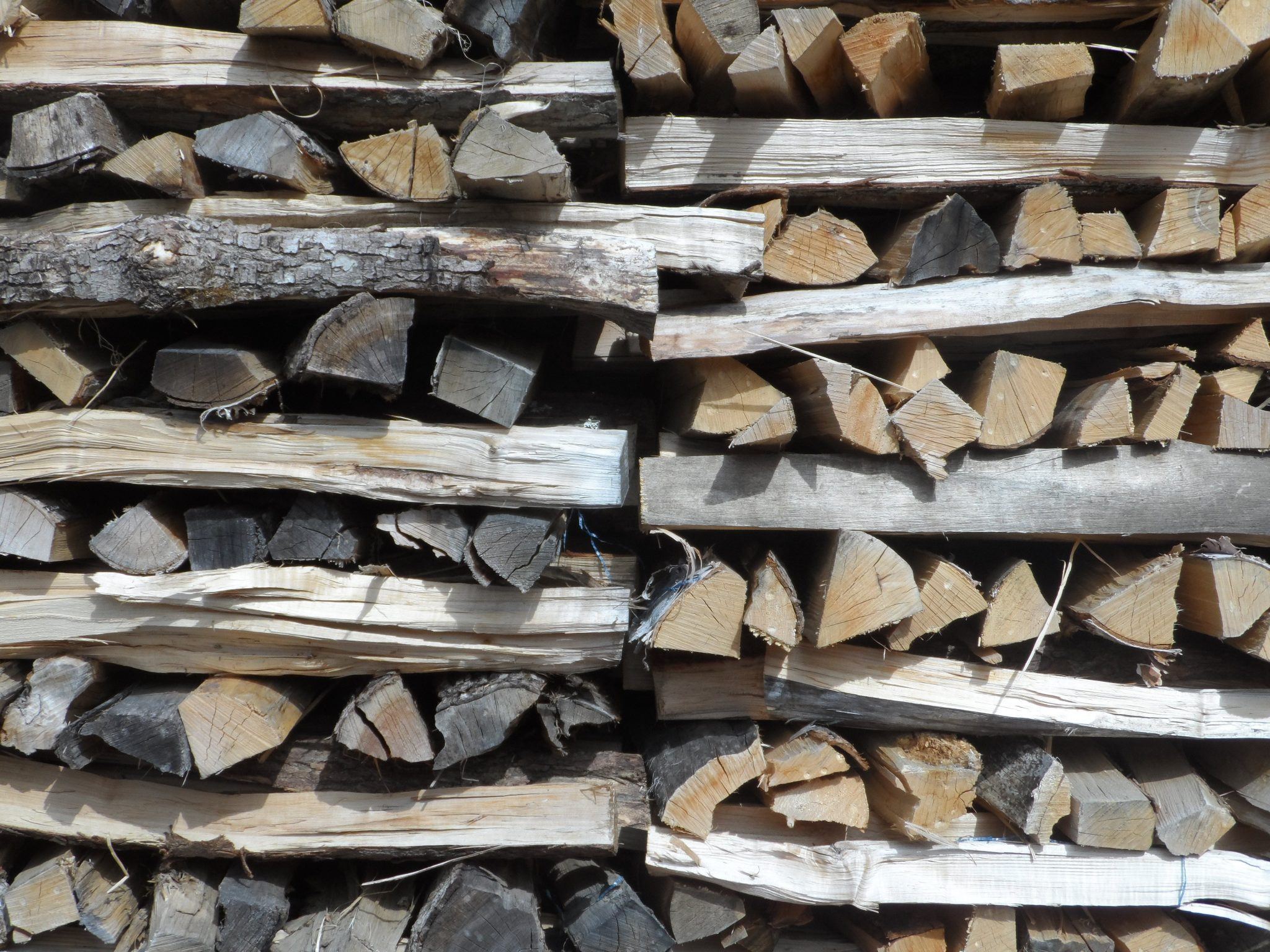


New lumber is yellow-green and will steam and spit. A great deal of green lumber can lead to pitch building up in your chimney, so avoid any lumber that feels damp or sticky to the touch.
Call Around And Comparison Shop
How much is a cord of wood?
The wood that you don't have to cut, split or haul can be pretty much priceless on a very cold winter day. The cord of wood price in 2017 (and any other year, for that matter) will vary by season. As a general rule, a cord of split wood offering 16"-long pieces will cost $180 or less in the summertime. In the winter, a cord may run as high as $400. So if you foresee needing a considerable amount of wood for the winter, be wise and buy early!
How many pieces of wood in a cord?
A good ballpark estimate comes from the assumption that there are about 325 pieces of wood in a face cord.
A face cord is 1/3 of a full cord, so 325 X 3 equals 975, or nearly 1,000 pieces of wood in a cord.
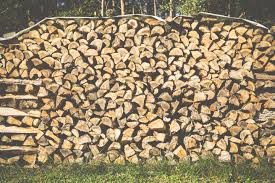


How many cords of wood do I need for winter?
There isn’t a one-size-fits-all answer for this one, but do consider the following: do you have any backup heat? Do you have a covered storage area where you can store your wood off the ground? If you've got covered storage, any unburned wood will last until the following year. If your wood is going to get wet and may pick up pests, your home will be safer if you go ahead and use your furnace.
How long will it take to burn a cord of wood?
Again, your weather conditions and heating options will have a big impact on this question. However, stacking your fireplace properly so your wood burns efficiently, doesn't leave a great deal of messy ash and puts as much heat as possible into your home is a first important step on the path to burning only the wood you need.
Conclusion
Firewood preparation is a labor of love, and sitting beside a warm fire or wood stove is a warm embrace. If you're splitting your own wood at a new place or are using a new stove, try stacking your wood in cords where possible to see just how much you wind up burning each winter. Keeping your wood stacked as opposed to jumbled will also protect the raw ends of the logs from moisture exposure and reduce rot.
Of course, each season is different, as is each piece of wood. Avoid tracking your wood use by pounds; moisture content alone can badly skew the amount of lumber you burn each year. Additionally, small chunks of wood are a hassle to weigh. If you're weighing large logs prior to burning, you're probably not getting the best quality dry wood for your stove.
